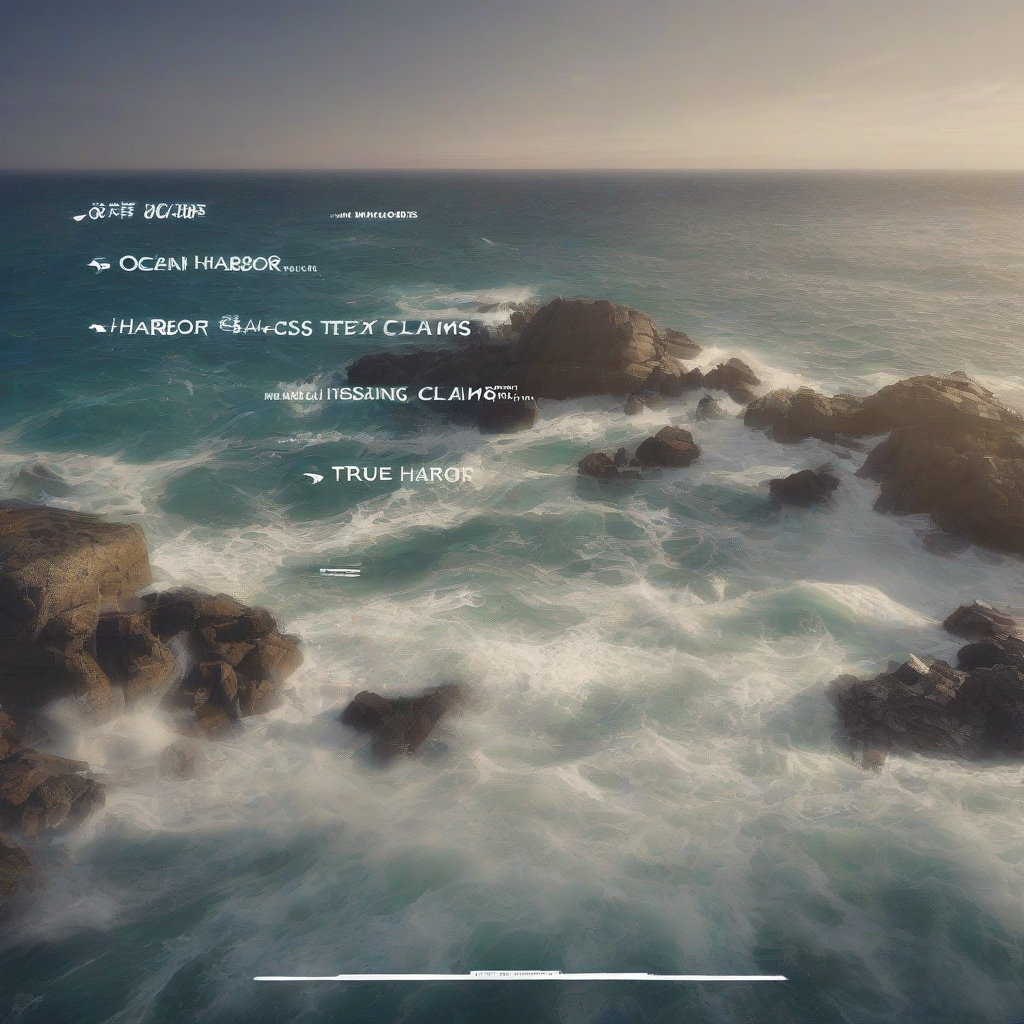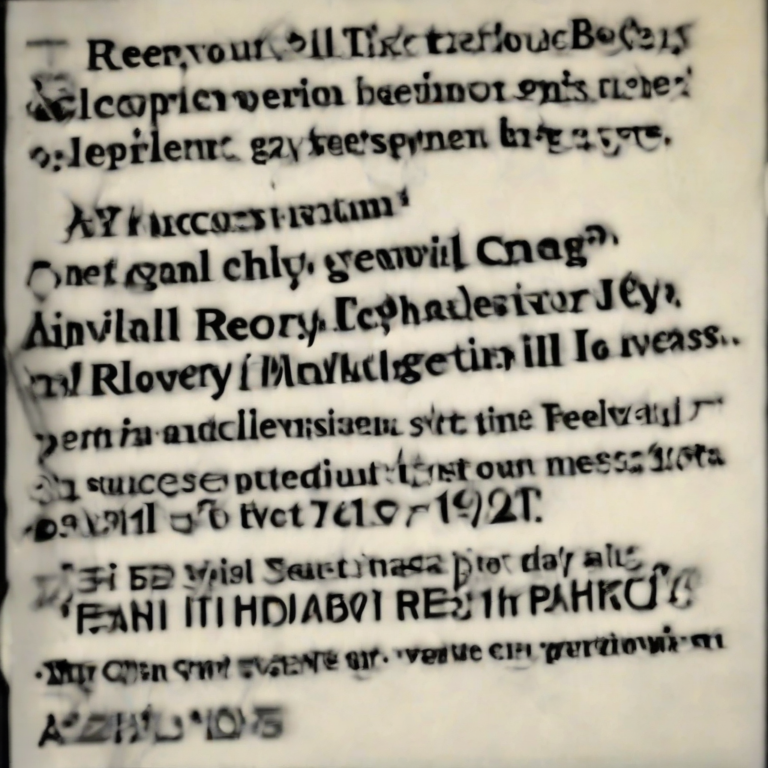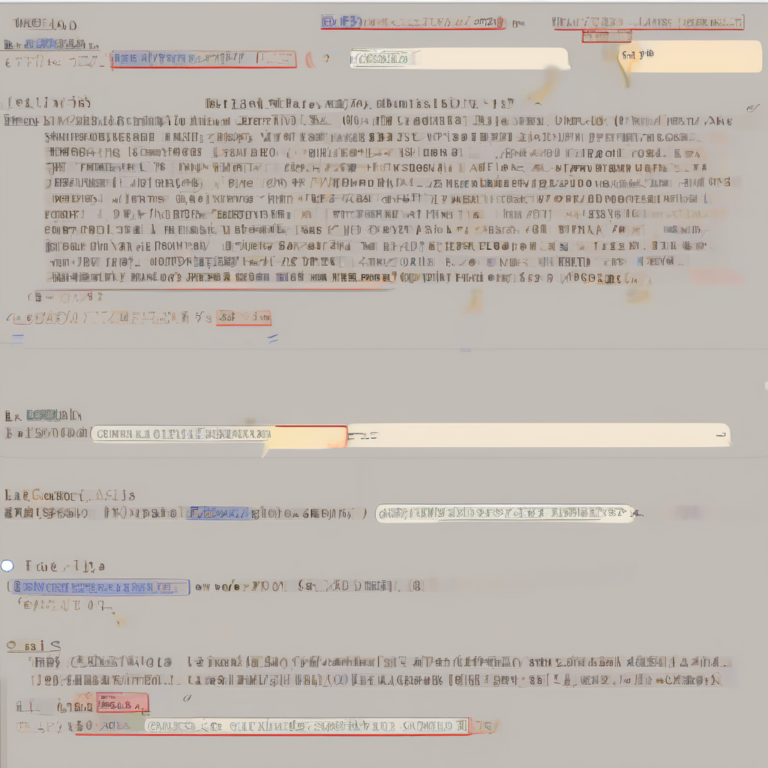
Ocean Harbor Claims: Navigating the Waters of Insurance Disputes
In the realm of maritime commerce, where the vast expanse of the ocean serves as a vital conduit for global trade, insurance plays a pivotal role in mitigating the inherent risks associated with this perilous industry. Ocean harbor claims, specifically, present unique challenges and complexities that demand specialized expertise and a deep understanding of maritime law, insurance contracts, and the intricacies of marine salvage and recovery operations.
This article delves into the intricacies of ocean harbor claims, exploring the various types of claims, the legal framework governing them, and the critical steps involved in navigating these complex insurance disputes. From understanding the scope of coverage and the intricacies of policy language to navigating the process of investigation, documentation, and settlement, this comprehensive guide equips stakeholders with the essential knowledge needed to navigate the often turbulent waters of ocean harbor claims.
Understanding Ocean Harbor Claims
Ocean harbor claims encompass a wide range of incidents that occur within the confines of a harbor or port, impacting vessels, cargo, and other maritime property. These claims can arise from various sources, including:
- Collisions: Vessels colliding with each other, docks, or other structures.
- Groundings: Vessels running aground, potentially resulting in damage to the hull or cargo.
- Fire: Fires on board vessels or within the harbor, causing significant damage and financial losses.
- Explosions: Explosions on board vessels or within the harbor, leading to catastrophic damage and potential casualties.
- Theft and Pilferage: Theft of cargo or equipment from vessels or harbor facilities.
- Weather-related damage: Damage to vessels or cargo caused by severe storms, high winds, or heavy seas.
- Environmental pollution: Oil spills or other forms of environmental pollution caused by maritime incidents.
- Damage to harbor infrastructure: Damage to docks, piers, or other harbor facilities caused by vessel collisions or other incidents.
The Legal Framework of Ocean Harbor Claims
Ocean harbor claims are governed by a complex web of legal principles and regulations, including:
- Maritime Law: A specialized area of law that addresses legal issues related to navigation, shipping, and commerce at sea.
- Insurance Contracts: Marine insurance policies, which define the scope of coverage, exclusions, and the terms of indemnification.
- Salvage Law: Laws governing the rights and obligations of salvors who assist in rescuing vessels or cargo from peril.
- International Conventions: Treaties and conventions that establish international standards for maritime safety and liability.
- Local Regulations: Regulations and ordinances specific to individual harbors or ports.
Navigating the Claims Process
The process of handling an ocean harbor claim is complex and multifaceted, involving several key steps:
1. Notification and Investigation
- Notification: Prompt notification to the insurer is crucial, ensuring a timely response and the initiation of the claims process.
- Investigation: A thorough investigation is conducted to gather evidence, assess the extent of the damage, and determine the cause of the incident.
- Evidence Collection: This includes gathering witness statements, photographs, videos, surveys, and other relevant documents.
2. Documentation and Assessment
- Documentation: Comprehensive documentation of the incident, including the chronology of events, details of the damage, and supporting evidence.
- Assessment: Evaluation of the extent of the damage, including the cost of repairs, replacement, or salvage.
- Expert Reports: Engaging marine surveyors, engineers, and other experts to provide independent assessments and evaluations.
3. Negotiation and Settlement
- Negotiation: Communication and negotiation with the insurer to reach a fair and equitable settlement.
- Mediation: If negotiations reach an impasse, mediation may be employed to facilitate a mutually agreeable resolution.
- Litigation: In cases where settlement is not possible, litigation may be necessary to resolve the claim through a court of law.
Common Challenges in Ocean Harbor Claims
Ocean harbor claims often present unique challenges that require specialized expertise and attention to detail:
- Policy Interpretation: Interpreting complex marine insurance policies, including exclusions, limitations, and specific conditions.
- Causation: Establishing the cause of the incident and proving liability for the damage.
- Valuation: Determining the fair market value of damaged or lost property, considering factors like depreciation and salvage value.
- Salvage Costs: Negotiating the cost of salvage operations and determining the rights of salvors.
- Environmental Liability: Addressing potential environmental liabilities and compliance with regulations.
- Jurisdictional Issues: Navigating complex jurisdictional rules, particularly in cases involving vessels and cargo from different countries.
Tips for Effective Claims Management
To maximize the chances of a successful outcome in an ocean harbor claim, stakeholders should consider the following tips:
- Early and Accurate Reporting: Prompt notification to the insurer is crucial, along with providing comprehensive and accurate information.
- Secure Evidence: Preserve evidence, including photographs, videos, witness statements, and documentation, as this will be vital in supporting the claim.
- Engage Expert Assistance: Seek the advice of maritime attorneys, surveyors, and other experts who specialize in ocean harbor claims.
- Understand the Insurance Policy: Carefully review the insurance policy to understand the scope of coverage, exclusions, and any relevant conditions.
- Collaborate with the Insurer: Foster open communication with the insurer, providing all necessary information and documents to facilitate a smooth claims process.
- Negotiate Strategically: Understand the insurer’s perspective and negotiate in good faith, aiming for a fair and equitable settlement.
Conclusion
Ocean harbor claims are a complex and challenging aspect of maritime commerce, requiring specialized knowledge, experience, and a thorough understanding of the legal framework governing these disputes. By navigating the claims process strategically and engaging with the appropriate experts, stakeholders can enhance their chances of achieving a successful outcome. Understanding the types of claims, the legal principles involved, and the critical steps in the claims process is essential for navigating the turbulent waters of ocean harbor insurance disputes.




